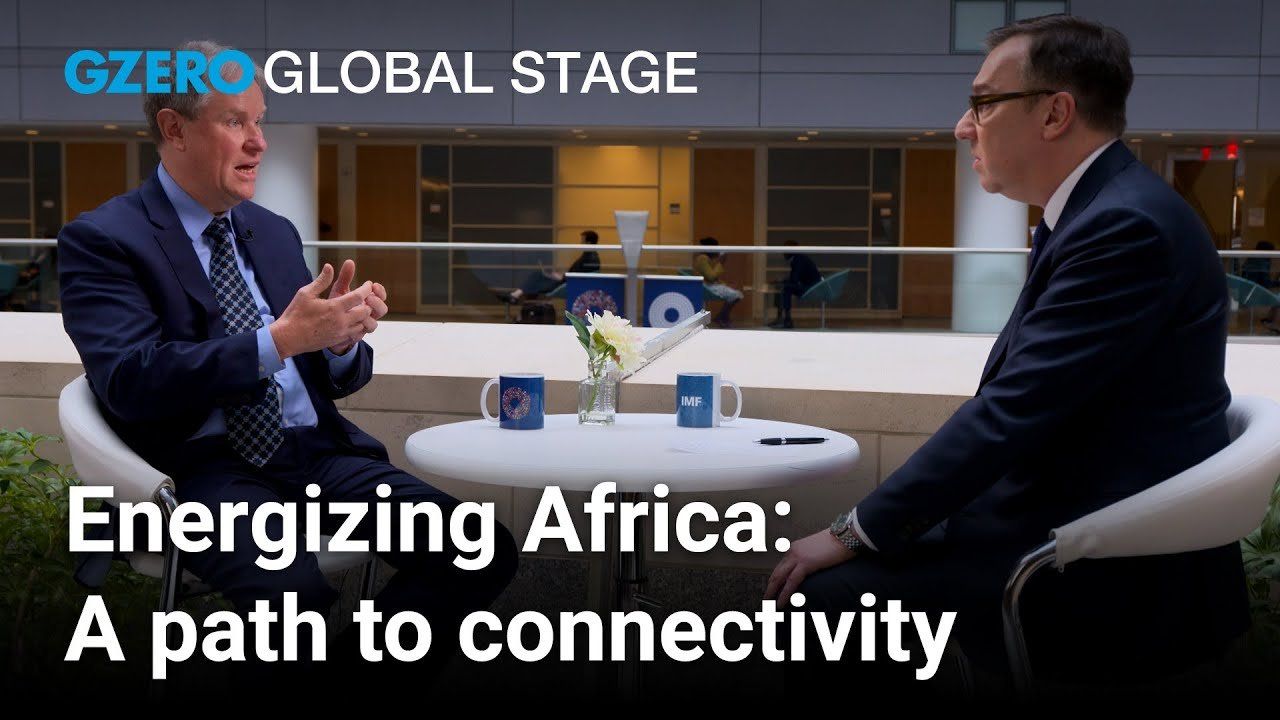
World Bank Group is bringing power to the people. Literally.
This week, during the bank’s annual Spring Meetings, the group announced a major new initiative to provide electricity to 300 million Africans by 2030. It is estimated that nearly 800 million people globally lack access to power, and the vast majority of them, 600 million, live on the African continent.
GZERO’s Tony Maciulis met with the World Bank’s Director of Infrastructure for West Africa Franz Drees-Gross, to discuss the project's details.
Over the next six years, the World Bank aims to connect 250 million people using $30 billion of public sector funding largely drawn from its International Development Association. The development finance institution provides low-interest loans and grants to the poorest countries. The group has also partnered with the African Development Bank, which has committed to supporting an additional 50 million people.
The connectivity will come from a combination of sources, some existing and some to be created by the project.
“It turns out that the most cost-effective way to connect those 250 million people is to connect about half of them using off-grid solutions,” Drees-Gross said. “So that means solar home systems, it means mini-grids that aren't connected to the larger national grid, and the other half of that goal will have to be connected by grid extensions and grid densifications.”
The ambitious plan comes with challenges including fortifying and modernizing existing utility companies to be able to consistently provide power and collect customer payments.
“The problem in many Sub-Saharan African countries is that utilities aren't recovering their costs,” Drees-Gross said. “They lose 30, 40, sometimes 50% of electricity due to commercial and technical losses. Since they only invoice a fraction of what they buy from the generators and then fail to collect that entire amount, that leads to a deficit.”
That inconsistent business has made the utilities less attractive to private-sector investors. World Bank hopes its support in stabilizing the power industry in the region will be an opportunity that will bring in private investment, ultimately powering the growth of more economies in Africa.